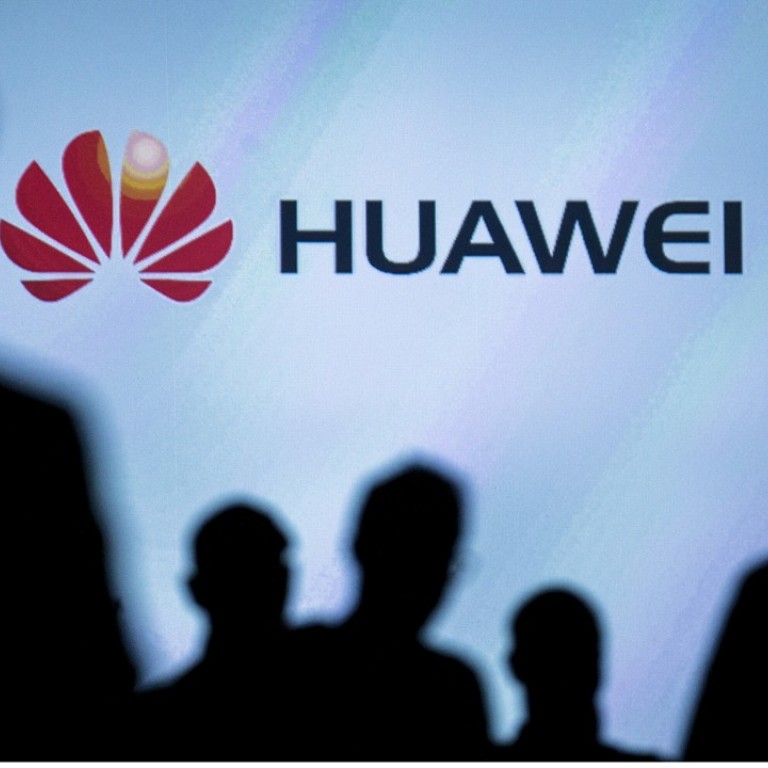
What’s next for Huawei as New Zealand becomes latest US ally to reject 5G bid?
- Europe is now key for Huawei’s overseas roll-out of 5G network equipment, according to a Jefferies report
- Huawei has already signed 22 5G equipment supply contracts
Huawei Technologies, the world’s largest telecommunications equipment supplier, could be facing tough prospects in its overseas markets amid reports that the United States has put pressure on its closest allies to block the Chinese company from taking part in 5G mobile network projects because of security concerns.
Questions about the security of Huawei’s equipment re-emerged this week after Spark, the biggest telecoms network operator in New Zealand, said in a statement on Wednesday that the country’s intelligence agency blocked its proposal to use the Chinese firm’s equipment for its 5G development plans.
National security was also the reason behind the decision made by the government of neighbouring Australia in August to bar Shenzhen-based Huawei and ZTE Corp from supplying 5G equipment to the country’s telecoms carriers.
New Zealand’s ban on Huawei network equipment followed last week’s Wall Street Journal report, which cited anonymous sources, about the US government exerting increased pressure on foreign allies to ditch Huawei gear that it considered a threat to cybersecurity.
Washington’s campaign on strong telecoms safeguards appear to focus on the countries belonging to the intelligence alliance known as the Five Eyes, which comprise the US, Canada, the United Kingdom, Australia and New Zealand. Three of those five allies have now made a stand against Huawei.
Last month, US lawmakers urged Canada to drop Huawei from the country’s 5G network development plans. The UK, so far, remains a market where Huawei technology is welcome.
Europe is not expected to abandon Huawei and Chinese telecoms equipment in general, according to a recently published report by Jefferies equity analyst Edison Lee.
“We believe the key now is Europe, in which Huawei has an estimated [telecoms equipment] market share of 40 per cent,” said Lee, who covers Hong Kong-listed ZTE, China Mobile, China Unicom and China Telecom.
Maintaining its business ties in Europe would be a big deal for Huawei because Lee estimated the continent’s share of global telecoms capital expenditure is between 25 per cent to 30 per cent. Huawei has been a major supplier of 4G network equipment to many telecoms carriers in Europe.
“Technologically, all European telecoms operators are planning on migrating from 4G to 5G Non-Stand-alone (NSA) only,” he said.
Telecoms network operators adopting 5G NSA will be able to protect their legacy mobile network because this set of specifications is “backward compatible” with 4G. Operators will be able to hook up new 5G base stations with their 4G networks to provide higher data speeds and greater capacity for consumer services, without making any substantial changes in the infrastructure.
“Therefore, the risk of using a different 5G vendor from its 4G system is very high for potential interoperability problems,” Lee said. “Based on our understanding, no operator migrating to 5G NSA would like to switch vendors (assuming there are no non-commercial considerations).”
In spite of the security concerns raised by the US against it, Huawei said at a mobile broadband conference in the UK earlier this month that it had already signed 22 5G equipment supply contracts.
“Since China has not even made 5G spectrum decisions, we assume those 22 contracts are all overseas,” Lee said.
Privately held Huawei, caught in a vortex between the world’s two largest economies amid an escalating trade and technology war, has faced several setbacks for its global businesses this year.
The US government has blacklisted almost all of Huawei’s business in the country, apart from ramping up efforts to persuade allies to do the same. Washington has maintained that Huawei’s close ties with the Chinese government pose fundamental threats to national security.
Huawei has denied all the security claims as well its ties with the Chinese government.
“As a leading global supplier of telecoms equipment, we remain committed to developing trusted and secure solutions for our customers,” Huawei said in a statement, adding that its 5G equipment is already being deployed by major carriers around the world.
Eric Xu, one of the rotating chairmen at Huawei, told CNBC in an interview on Thursday that the move by US to bar the company from its market could end up hurting the country’s ambitions in 5G.
"For Huawei, as leader in 5G technology, we don't have the opportunity to serve the U.S. consumer with 5G solutions and services, then the U.S. market is a market without full competition while still blocking leading players from participation,” Xu said in the interview. “Now, I'm not sure whether they can really deliver their objective of becoming the world's No. 1 in 5G.”
In a recent list commending 100 extraordinary contributors to China’s economic development that was published by the Chinese government mouthpiece People’s Daily, Ren Zhengfei, the 74-year-old founder of Huawei, was not included, which drew wide public speculation that the company was distancing itself from any association with Beijing. Huawei declined to comment on the list.
Huawei, which has 170,000 employees and operations in about 160 countries and territories, still must contend with US pressure.
In a recently published 53-page report, the Office of the US Trade Representative singled out a number of entities, mostly based on publicly available material, as proof of China’s long-existing technology transfer and intellectual property theft.
The report included an article from The Weekend Australian, which cited a national security source as confirming Huawei’s role in cyberespionage. It also cited a report from Sankei Shimbun that the Japanese government was considering a ban on Huawei in a bid to prevent cyberattacks and align with the US and Australia’s recent restrictions.
“While the Trump administration is demanding free and fair trade, it is suppressing a private enterprise in another country,” Liu Guohong, a research centre director at Shenzhen-based think tank China Development Institute, said in a telephone interview.

